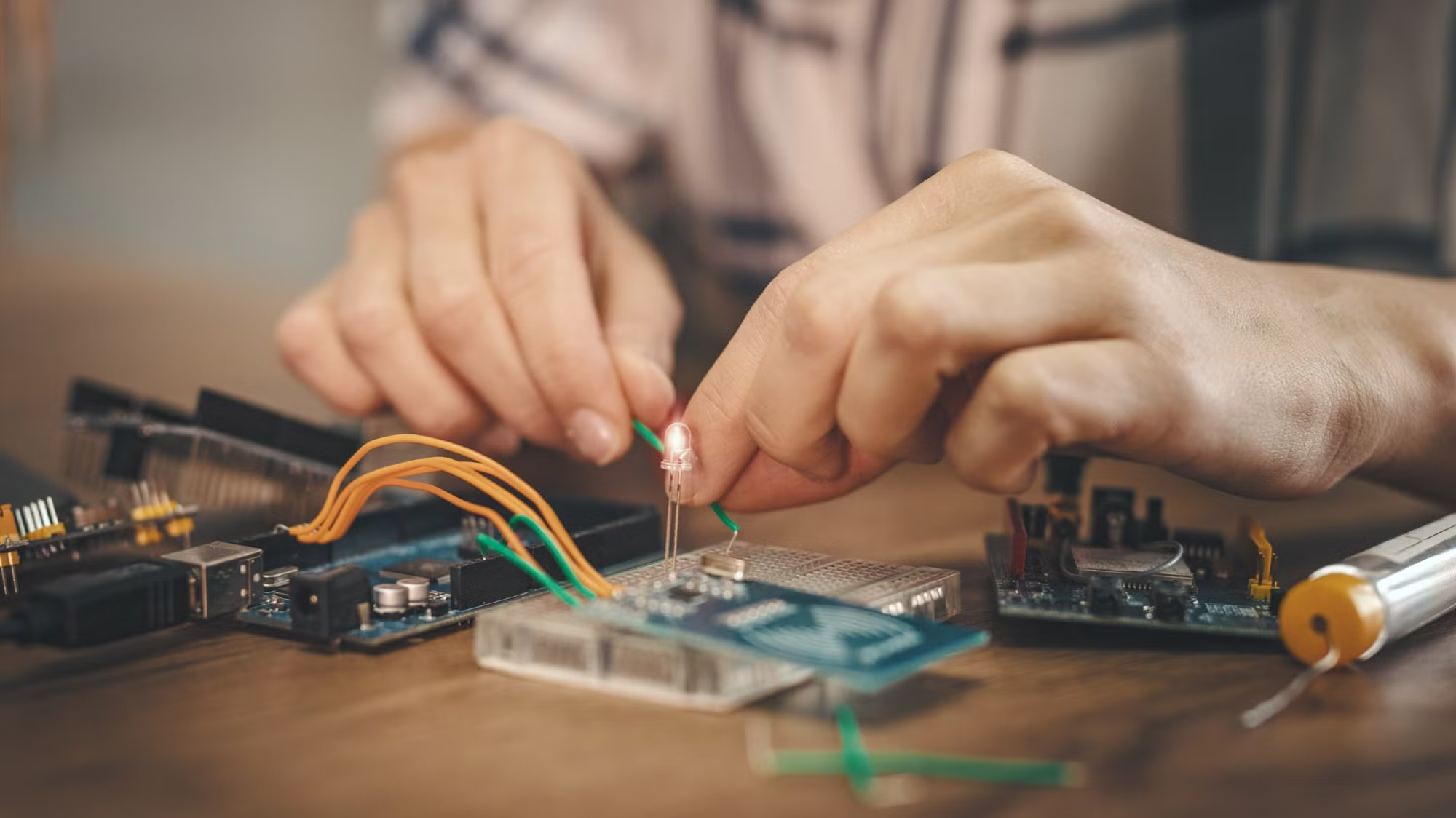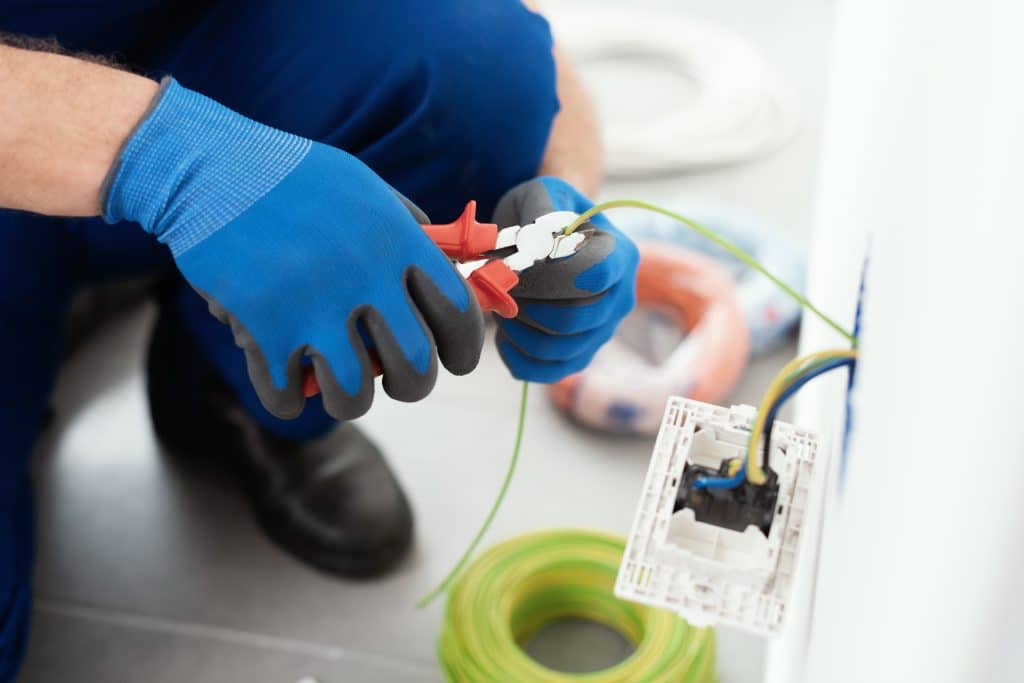Tackling home improvement projects can be a fulfilling experience. They allow you to personalize your home, save money, and take pride in your handiwork. But when it comes to electrical work, the stakes are higher.
Your home’s electrical system powers everything from the lights to your essential appliances, and while some tasks are safe for DIY enthusiasts, others require the expertise of a licensed professional. Knowing your limits is critical to ensuring safety and functionality.
Simple Electrical Projects You Can Tackle Safely

For hands-on homeowners, a few electrical tasks are safe and manageable without professional training. These projects typically don’t involve complex wiring and carry minimal risk when done carefully.
Here are some common examples:
- Replacing light bulbs or fixtures: Swapping outdated fixtures for modern ones can refresh a room’s look with minimal effort.
- Upgrading outlet covers: Decorative or child-safe outlet covers are simple and practical updates.
- Installing smart home devices: Plug-and-play gadgets like smart thermostats or light switches are beginner-friendly if you follow instructions.
- Safety first: Always turn off power at the breaker box before beginning any electrical work. Double-check with a voltage tester to ensure the area is safe, and don’t rush—attention to detail is key.
These simple tasks are perfect for confident DIYers looking to enhance their homes without taking on unnecessary risks.
When It’s Time to Call a Licensed Electrician
Some electrical projects require professional expertise due to their complexity, safety concerns, or legal requirements. Attempting these tasks without proper training can lead to costly mistakes—or worse, put your home and family at risk.
Projects that demand professional expertise include:
- Work on your home’s electrical panel: Upgrading panels, adding circuits, or addressing tripped breakers requires technical knowledge.
- New wiring installations: The wiring used to power a home addition, install outdoor lighting, or create dedicated circuits for appliances must meet strict codes.
- Troubleshooting electrical issues: Flickering lights, warm outlets, or frequent circuit trips are signs of underlying problems that need expert evaluation.
Licensed electricians aren’t just skilled at these tasks—they also ensure all work complies with local safety codes and standards. Their training and experience make them uniquely qualified to handle complex electrical systems, reducing risks to your home and family.
Calling a licensed electrician for these projects not only safeguards your home but also gives you the peace of mind that everything is done right.
Understanding Licensing Requirements Across the United States
Electrical licensing requirements vary across states, but their purpose is universal: ensuring safety and compliance with legal standards. Licensed electricians are trained to meet these regulations, which helps prevent accidents, faulty installations, and code violations.
For example, electricians preparing for a Washington electrical license must complete hands-on experience and pass a state-approved exam. These requirements ensure they are equipped to handle state-specific codes and safety practices.
Other states have similar processes with slight differences. Oregon emphasizes apprenticeships as part of its licensing, while Florida may require additional certifications for certain jobs. These differences highlight the importance of hiring professionals familiar with local regulations.
According to the National Electrical Contractors Association, adhering to licensing standards ensures safety. It guarantees compliance with state and local laws, which protects your home and family while shielding you from potential legal or financial issues.
Hiring a licensed electrician ensures that your home’s electrical work is in capable hands, no matter where you live.
Why a Licensed Electrician Matters for Family Safety

Your home should be a safe haven for your family, and properly managed electrical systems are key to achieving that. Licensed electricians ensure that your wiring is installed and maintained safely, reducing the risk of electrical fires, shocks, and other hazards.
Hidden issues electricians can address include:
- Aging or damaged wiring
- Outdated electrical panels
- Improper grounding that poses safety risks
Licensed professionals are trained to identify and resolve these problems, ensuring your home remains safe and secure. Their adherence to safety standards protects your family while preventing long-term issues like overloaded circuits or improperly installed wiring.
When it comes to safeguarding your home, investing in professional electrical work is a decision you’ll never regret.
Conclusion: Making the Right Choice for Your Home
Deciding whether to do the work yourself or call a licensed electrician is a crucial step in home care. While smaller tasks can be fulfilling DIY projects, complex electrical work requires professional expertise to protect your home and family.
Licensed electricians bring the skills and knowledge needed to handle intricate work while adhering to local safety codes. Their ability to address underlying issues ensures that your electrical system remains reliable and secure.
Incorporating home care essentials into your routine helps maintain a safe and comfortable home for your family. Whether you’re tackling small upgrades or larger renovations, making informed choices ensures that your home remains a haven for everyone inside.
When it comes to electrical work, safety should always come first. The next time you face an electrical project, consider your limits and consult a professional when needed. Your home and family’s safety are always worth it.















